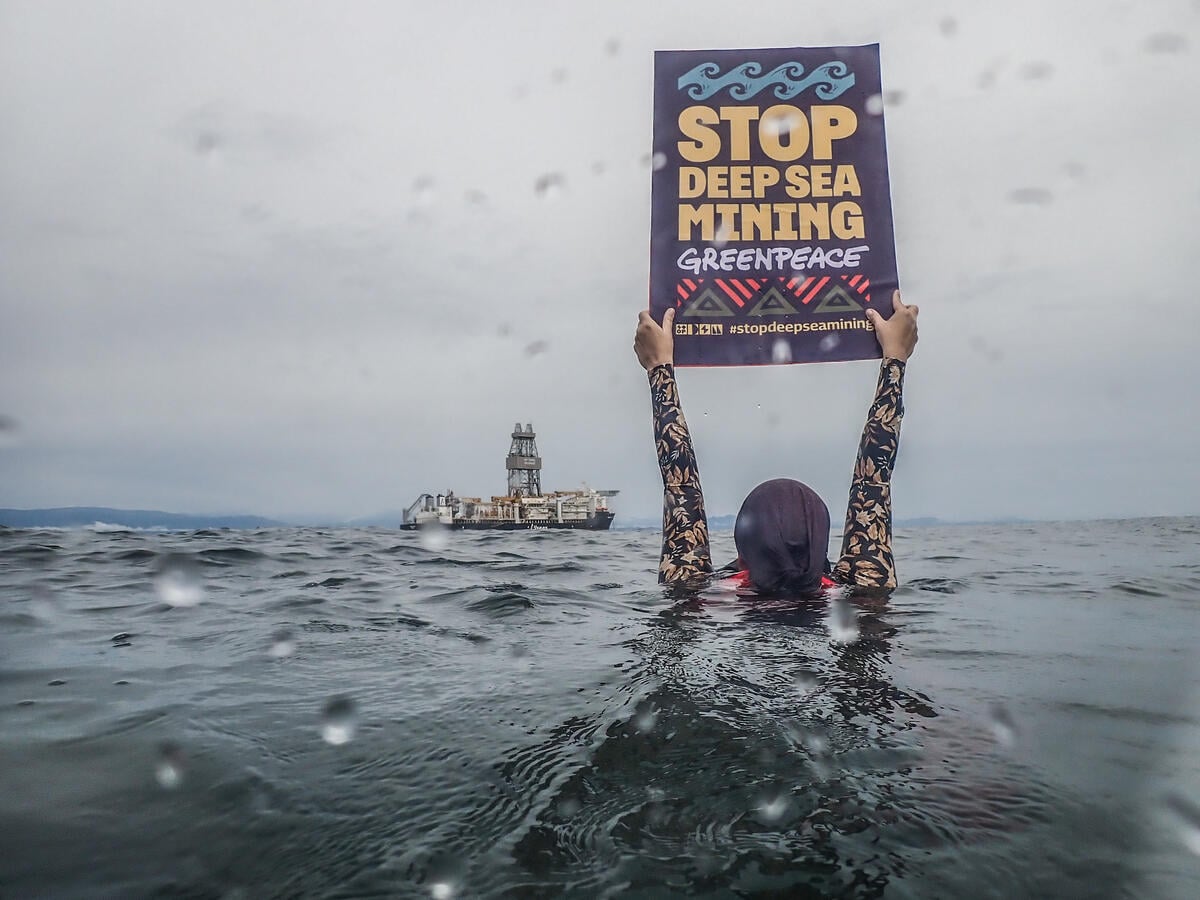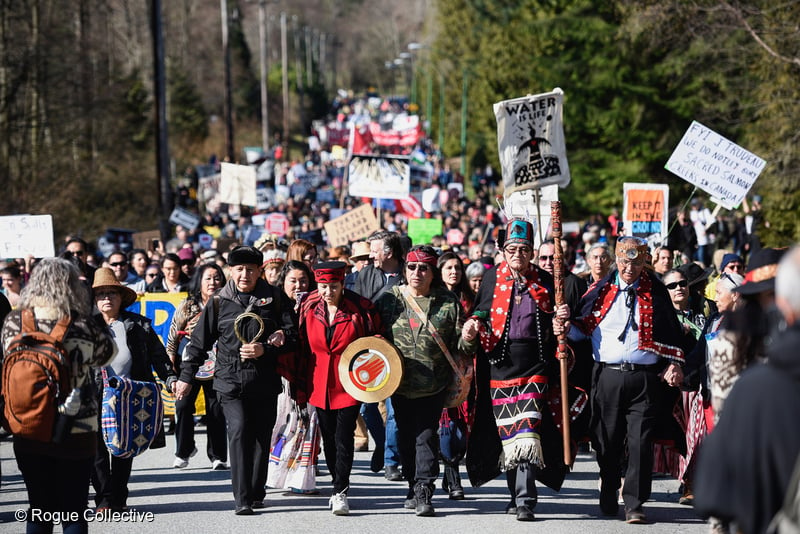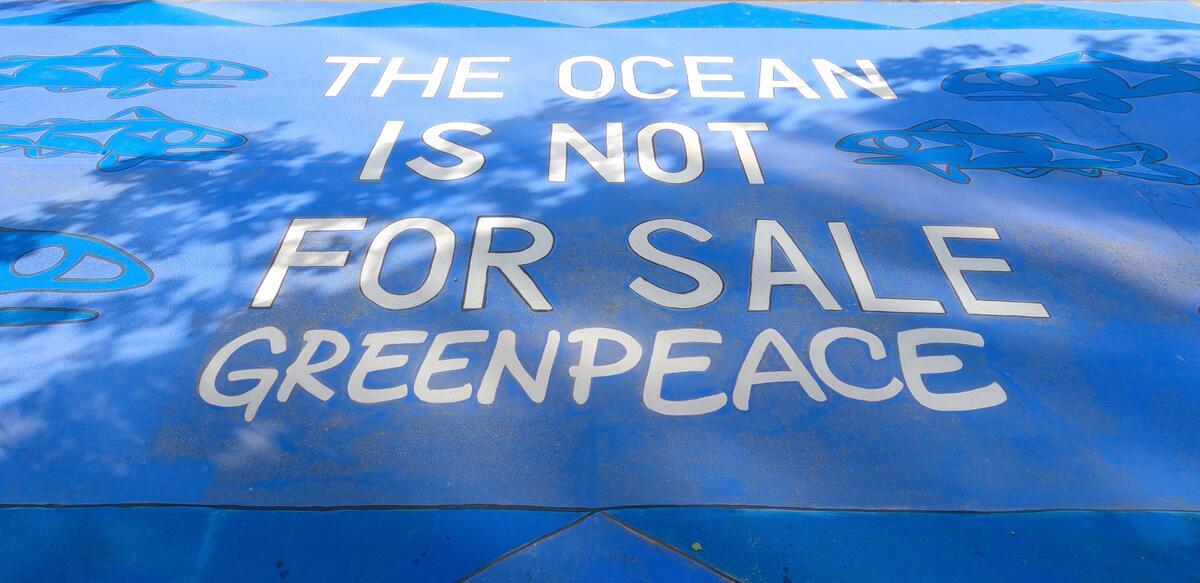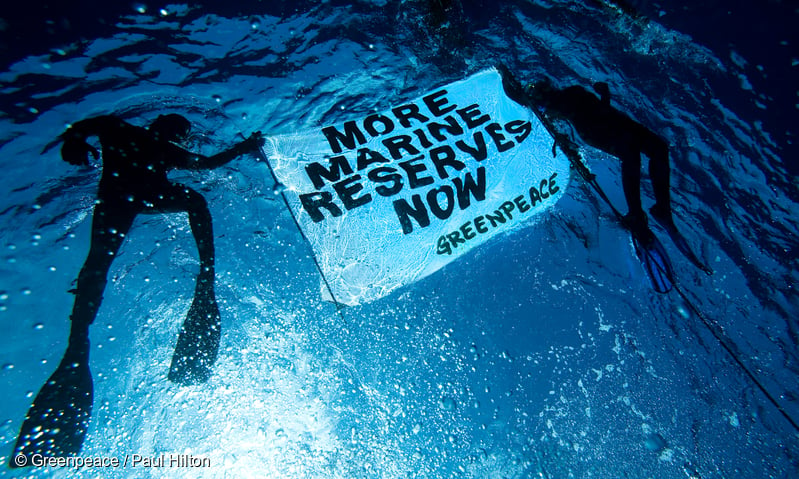
MONTRÉAL – The fourth and final round of negotiations towards a Global Ocean Treaty, due to take place later this month at the UN in New York has been postponed due to concerns around the novel coronavirus (COVID-19). [1]
Commenting, Dr Sandra Schoettner of Greenpeace’s Protect the Oceans campaign said:
“We stand in solidarity with all those affected by the spread of COVID-19. We hope that the postponement of this crucial summit about the protection of our oceans doesn’t slow political momentum towards a strong Global Ocean Treaty. Our global oceans are in a perilous state, and as one of our planet’s most important regulatory systems, we urgently need a treaty agreed in 2020 that allows at least 30% of the world’s oceans to be effectively protected; helping to safeguard wildlife, create healthy oceans and tackle the climate crisis. We need true leadership from governments, and expect they will use the additional time wisely to adopt a treaty as robust as possible at this next and final session, because, ultimately, they are discussing the fate of half our planet.”
ENDS.
Notes
[1] The conference – Intergovernmental Conference on Marine Biodiversity of Areas Beyond National Jurisdiction – was due to take place at the UN in New York between 23 March to 3 April.
Greenpeace has been campaigning for a historic Global Ocean Treaty, which would allow for the creation of a global network of ocean sanctuaries, free from harmful human activities, across at least a third of the world’s oceans. The campaign has the backing of 3 million people worldwide. For more information, see: https://www.greenpeace.org/international/act/protect-the-oceans/
For more information, please contact:
Laura Bergamo, Communications officer, Greenpeace Canada
[email protected], +1 438 928-5237
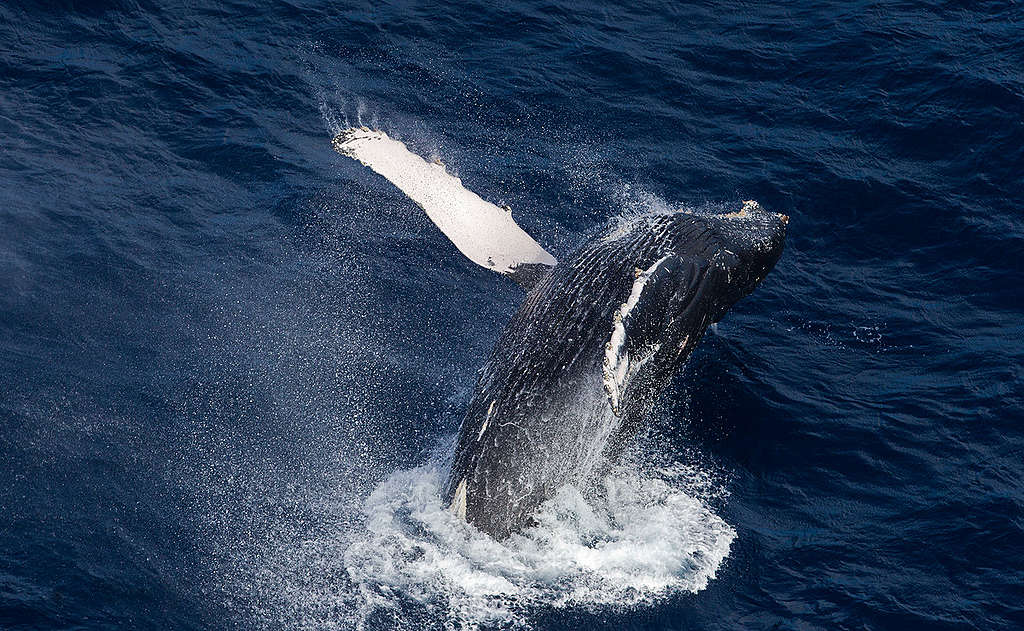
The seas provide half of our oxygen, food for a billion people, and a home for some of the most spectacular wildlife on Earth. But the impacts of climate change, pollution and destructive industries mean they’re in more danger than ever.
Take action
